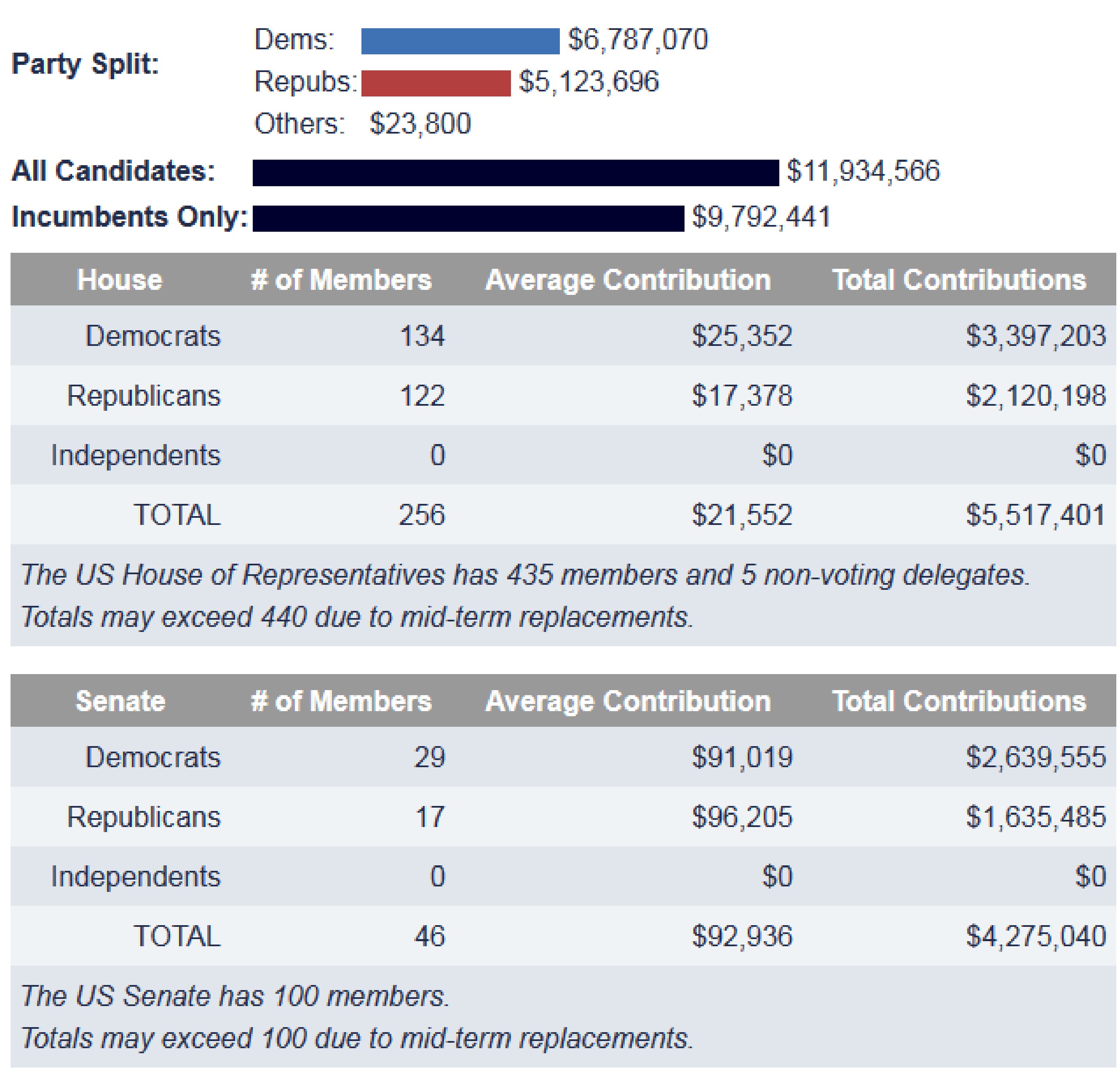At the request of a few readers, (including Fran M), here are this week’s cartoons.
Sign of the times:

Israel’s dilemma:

Both sides:

Republican talking point:

Halloween was the same as any other night for the grifter:

The Daily Escape:

First Snow, Cedar Breaks NM, UT – October 2023 photo by Dawn A. Flesher
America is all a-twitter over whether we are going to continue to fund Ukraine. The basic argument NOT to fund them going forward is how expensive it is, and how the money could be better used at home. Paul Krugman disputes this:
“In the 18 months after the Russian invasion, US aid totaled $77 billion. That may sound like a lot. It is a lot compared with the tiny sums we usually allocate to foreign aid. But total federal outlays are currently running at more than $6 trillion a year, or more than $9 trillion every 18 months, so Ukraine aid accounts for less than 1% of federal spending (and less than 0.3% of GDP. The military portion of that spending is equal to less than 5% of America’s defense budget.”
Wrongo isn’t saying that $77 billion is chump change. But if the MAGA types making the argument to spend it at home instead of in Ukraine would actually agree to increasing social spending with it, they’d have a solid argument. But that’s doubtful. It’s difficult to see them agreeing to spending anywhere near that level to improve the economic distress of America’s middle class and poor.
One thing that thinking about this expense highlights is just how expensive our military hardware has become. Take the F-35 fighter jet, which cost about $80,000,000 each. Air and Cosmos International reports that the maintenance costs for the F-35 are $42,000 per flight hour. And it’s reported that only about 26% of all F-35s are “available” at any point in time, according to the Congressional Budget Office.
It’s maybe an unfair comparison but think about how many drones Ukraine could purchase with one hour’s operating expense of one F-35, or with one of the bombs it carries, which cost about $500,000 each. One hour of F-35 operating expense equals about seven switchblade drones. The smallest Switchblade model fits in a backpack and flies directly into targets to detonate its small warhead. Each F-35 bomb’s cost is equivalent to around 90 drones.
America’s military strategy is based on air superiority, followed by massive bombing sorties and artillery fire. The big lesson in Ukraine is that piloted aircraft have been mostly irrelevant. Russia has many more and newer aircraft, and although they’ve bombed much of Ukraine, they haven’t gained an advantage as a result. Basically they’re using jets to launch missiles from positions beyond the range of Ukraine’s Stinger and Patriot missile systems.
Similarly, Russia’s navy hasn’t been decisive vs. Ukraine. Russia has the advantage at sea, while Ukraine’s ancient fleet is bottled up. But Ukraine is managing to ship (some) grain because the Russian navy is hiding from Ukraine’s cheap naval drones.
Ukraine isn’t breaking through Russia’s lines because its military, like Russia’s military, isn’t fit for the purpose. The artillery-based stalemate on the ground would favor Ukraine if it wasn’t for the in-depth layering of land mines by the Russians in the Ukrainian territory that the Ukies are trying to retake.
The days when Russia could advance into Ukraine under a screen of artillery fire, as they did during the first summer of the war, are over. Ukraine is the one advancing now. From Mark Sumner:
“Over the past several months, Russia tried to make advances at Svatove, quickly capturing a series of villages. That attack fizzled within days, and a week later Ukraine recaptured all the territory it had lost. Something similar happened at Kupyansk, where Russia was reportedly massing over 100,000 troops to drive Ukraine back across the Oskil River. Ukraine is still on the east side of the Oskil, and still in Kupyansk.”
At the moment, Ukraine appears capable of successfully capturing areas it targets and holding them against subsequent Russian assaults.
That’s not to say that the militaries built by the US, NATO, China and Russia are useless. Obviously, they have great value. But it’s clear how capital intensive warfare has become. Ukraine is showing us that there is an evolution in military tactics underway right in front of us.
In Ukraine, drones—both aerial and aquatic—have reached a critical mass. They are demonstrating widespread capabilities that make some traditional weapons systems take on more limited roles. And the immediate future in the Ukraine/Russian war will be drone warfare.
Any military in the world will become somewhat obsolete particularly in a land war, without a robust drone and anti-drone program. All are working feverishly to get there. Except perhaps for Turkey, who’s Bayraktar drones are already exported to both sides in the Russia-Ukraine war.
In Ukraine, drones have redefined the front lines. Before, we generally regarded the front line as the area where the infantry of both sides were engaged. But if soldiers with drones and a smart phone can project force sufficient to stop a tank 4-5 miles away, and then pick up another $1,000± drone and do it again a few minutes later, where’s the real front line?
This and more can be done with precision weapons like HIMARS at even greater ranges. But that requires more expense, more setup, and greater levels of support. There’s a vast logistical train behind a weapon like a mobile HIMARS launcher.
Going back to Napoleonic times, artillery has always been called “the king of battle”, because there’s no real defense against it once it’s firing. But this old artillery officer can tell you that it comes with those pesky logistics problems and much more expense and training.
In contrast, what’s needed to support a DJI quadcopter is in the hands of the operator. Early in the war, drones were performing roles that formerly were played by traditional aircraft. Now they’re also performing the roles of artillery and mortars. They are precision systems that deliver value at not just a lower price, but with fewer burdens of transport, maintenance, and training.
Like Ukraine, Russia has a lot to gain from drones since they bypass the two things that Russia does badly: logistics and training. You don’t need to get a million shells to the front lines if you can get a hundred thousand drones—and better than half of them will hit their target.
Drones can’t replace much more of the military equipment in the field, because the legacy equipment still has a big edge in both range and destructive power. But the cost-benefit ratio of drones is incredibly favorable. As battery technology continues to improve, the destructive power of drones will go up without significant incremental development cost.
What we’re seeing in Ukraine is the 2020s version of the asymmetric warfare that killed us in Vietnam and Afghanistan. Guerilla tactics on their home turf were more valuable than all of our expensive weapons systems.
And Russia is getting their ass kicked by the same kind of asymmetry in Ukraine today.
(Many thanks to Brendan K. for his input to this column)
2016 is ending on a somber note: We elected Donald Trump. We have confirmed his modus operandi, his lack of tweeting impulse control. We’ve seen his appointments to senior positions.
2017 will be an abrupt shift from the policies and guiding principles of the post-Reagan era. This will be true for the social safety net, tax policy, and several other primarily domestic policies, some which had their genesis in FDR’s New Deal. Then there is the Supreme Court.
It is doubtful that Trump can undo the Iran nuclear deal, but two other international policies will change.
First, America’s nuclear weapons policy: Donald Trump has recently tweeted that the US needs to “greatly strengthen and expand its nuclear capability.” We have had a 50-year period of nuclear arms control with Russia, mostly delivered by Republican presidents. It tamed and then downsized the nuclear arms race. But Trump’s national security appointees and Republicans in Congress now want to throw away their inheritance. They will try their best to bankrupt Moscow again. They will seek to chip away, if not walk away, from the New START and INF treaties. They will try to remove the CTBT from the Senate’s calendar and reduce funding for that Treaty’s global monitoring system.
Trump has shown little interest in intelligence briefings. This is reminiscent of Ronald Reagan’s first term. Recently declassified documents from the Reagan presidency show how slowly Reagan was brought up to speed on national security issues. Reagan took office in 1981, and was not fully up to speed by 1983, preferring to let his national security team handle those details. This is from the National Security Archive: (Emphasis by the Wrongologist)
Sharper understanding at high levels of the grave danger of nuclear war was one consequence of a Defense Department nuclear war game that occurred in mid-1983. In the “Proud Prophet” game…the lead players were JCS Chairman John W. Vessey and Secretary of Defense Caspar W. Weinberger… during the game Vessey and Weinberger followed standard policies constructed for crises; as a U.S.-Soviet conflict escalated, their actions initiated a major nuclear war. “The result was a catastrophe” in which “a half billion human beings were killed in the initial exchanges and at least that many more would have died from radiation and starvation.”…Proud Prophet had a chastening and moderating impact on the Reagan administration’s rhetoric and thinking about nuclear war….but…The Proud Prophet report remains massively excised and it is unknown even if or when Weinberger briefed Reagan on it.
(h/t Booman)
This history shows that the (unelected) national security apparatus thinks it prudent to keep newly elected presidents in the dark for a long time after they are elected. In the case of Harry Truman, he didn’t even know we had nuclear weapons until he was asked for permission to use them!
Our only hope with nuclear is that Trump seems to want to forge a working alliance with Russia. We know that a renewed nuclear arms race is not in either country’s interest. It’s possible that Trump will surprise us by doing deals with Vladimir Putin, who cannot afford an arms race.
Second, is Israel’s out-of-proportion reaction to the UN Security Council’s Resolution 2334, which passed with the US abstaining, rather than exercising its veto. The resolution condemns Israel’s construction of settlements within the occupied Palestinian territories. Benjamin Netanyahu didn’t take the Resolution well. He vowed revenge on everyone, except Trump. Netanyahu said that Israel will “re-evaluate diplomatic relations” with all 14 countries who voted yes, including permanent Security Council members Russia, the UK, China and France. “Re-evaluation” will have no meaning to them, but for the other nine, who knows? Bibi singled out Senegal and halted Israeli aid. He recalled Israeli ambassadors from some of the countries that voted for the resolution, called for re-evaluation of Israel’s relationship with the UN, including its funding commitment.
Republicans, emboldened by their love of Israel, have made threats to defund the UN, something we haven’t heard since John Bolton was relevant.
Almost certainly, Netanyahu’s strategy is to exploit the UN vote to convince Trump and his team that Israel needs to be compensated in some way for what the UN, and especially the US, has done.
More compensation. How Republican of them. America has given Israel $124 billion in aid, and Obama just authorized another $38 billion over the next ten years.
It’s time to cut Netanyahu adrift. What we have here is a US client state that thinks it’s in charge. The question is how bad do Israel’s policies have to be before it provokes some sort of reassessment by Congress? Or is everything to be swept under the rug of “existential necessity”?
The Trump and the I-love-Israel-more than-life-itself crowd in Congress are on track to do severe damage to the UN and to our ME strategy during the next four years.
Trump’s foreign policy is giving Wrongo the year-end blues.
The carve-up of Syria has started. When Israel’s Prime Minister Netanyahu met with Barak Obama on Monday, he asked for three things:
• That the US raise its aid to Israel from $2 billion US to $5 billion annually to be used against the “new” Iranian threat
• Israel intends to formally annex the Syrian Golan Heights, and Netanyahu wants our recognition of that annexation
• That the US submit the terms of any future deal involving Syria to Israel for their approval in advance of US approval
During the meeting, Netanyahu also clarified Israel’s purported “red lines” with regards to Syria.
We won’t tolerate attacks from Syrian territory, we won’t allow Iran to open a front [against us] on the Golan Heights, and we will disrupt the transfer of deadly weaponry from Syria to Lebanon…
That explains the money part of the requests. Well, we will do #1, we won’t do #3, and that leaves #2, recognition of Israel’s annexation of the Golan.
Some history: Israel occupied Syria’s Golan Heights after the Six-Day War in 1967, and annexed the Golan in 1981. In the intervening 48 years, neither the UN, nor any country has recognized the Golan annexation. The US could not unilaterally recognize the Golan annexation without upsetting our EU allies. In addition, Russia would not recognize the annexation, and they have an air force in Syria. And Iran could make life difficult for Israel by increasing Iranian aid and weapons to Hezbollah.
Why does Israel want to complicate Obama’s task in the Middle East? Well, he asked for recognition of Israel’s annexation of the Golan Heights, just as new oil reserves were discovered there.
Wait, they found oil in the Golan? Apparently, yes. And it’s potentially billions of barrels. The tangled web of the oil business is at work here: Genie Oil & Gas, a US company, is doing the exploratory drilling in Golan through its subsidiary, Afek Israel Oil and Gas, which holds an exclusive 3 year petroleum exploration license issued by the government of Israel. Genie’s founder and CEO is Howard Jonas, who has been a big financial backer of Netanyahu’s political campaigns. And, look at the advisory board of Genie Oil & Gas:
• Michael Steinberg, Board Chair
• Rupert Murdoch
• Jacob Rothschild, the chairman of the J Rothschild group of companies
• ex-CIA director James Woolsey
• Dick Cheney
• Lawrence Summers, former president of Harvard
• Bill Richardson, former secretary of energy under Bill Clinton
• Mary Landrieu, former Louisiana Democratic Senator
With “Advisors” like these, it would be foolish to bet against the US recognizing the Israeli annexation of an oil-rich Golan Heights at some point. From Mint Press News:
Israel hopes to quintuple the size of its settlements over the next five years by adding an additional 100,000 settlers to the region.
So, new settlers and new oil.
Perhaps Bibi’s request is really part of a longer game directed at the 2016 US presidential candidates, in which he is laying out his demands: “In return for my political support” go the unspoken, but implied words of Bibi, “I would like you to agree to fill my shopping bag,” including the Golan.
It turns out that Haaretz is now reporting that Mr. Obama has rebuffed Bibi’s bid to have the US recognize Israel’s annexing Golan:
Washington rejects Prime Minister Benjamin Netanyahu’s suggestion to US President Barack Obama at the White House on Monday to discuss the possibility of US recognition of Israeli rule over the Golan Heights, a senior White House official said.
We should have predicted this move by Israel: the Golan occupied, and Syria in fragments due to uprisings and attacks by ISIS creates a vacuum for Israel to fill. But if you buy that the request was really directed at the next president and the next Congress, and not the lame duck Obama, Bibi apparently is betting that his sycophants in the Congress are going to give him what he wants in 2017.
It would be a challenge for America’s politicians to explain to voters in 2016 why we should increase funding of Israel by $3 billion, instead of helping students pay off their college loans, or instead of building better roads.
We need to make sure that this additional reach into our pockets by Israel is a national campaign issue in 2016. Until a few politicians lose an election because they are too hawkish on Israel, we will continue to lavish money on them.
And our politicians will continue to support Israel’s Middle East policies at the expense of our own.
The Hill reports that on Monday, almost every freshman member of the US Congress jetted off on an all-expense paid trip to Israel for a week of briefings and lobbying. This year, the trip is intended to ensure they vote against the Iran nuclear deal.
The junket is an annual affair organized by AIPAC, the American Israeli Public Affairs Committee, and just 3 freshman are not going. 67 of the total of 70 are expected to go this year, flying business class and staying at five star hotels. AIPAC’s stated goal is that 80% of any Congress has been on one of its trips to Israel at least once. Among the world’s democracies, it is an unparalleled example of one country’s attempted influence on the political system of another.
The trip is paid for by The American Israel Education Foundation (AIEF), the educational wing of AIPAC. According to the National Journal, over the past 14 years, the foundation has spent more than $9.4 million on Congressional travel. There are two separate trips organized along party lines, one for Democrats, and another for Republicans. The Democrats’ trip begins on August 3, and will be led by House Minority Leader Steny Hoyer (D-Maryland). The Republican trip begins on August 8, and will be led by House Majority Leader Kevin McCarthy (R-California).
Wouldn’t it be nice if Congress had as much interest in the concerns of America as they apparently have for the concerns of Netanyahu? The bribe visit comes during the 60-day period in which Congress is reviewing the deal to curb Iran’s nuclear program. President Obama has threatened a veto if the GOP-led Congress votes to reject the agreement. That would place the onus on lawmakers to muster enough votes to override the president, and the trip gives Israeli Prime Minister Netanyahu, a fierce critic of the Iran deal, another chance to make his case directly to lawmakers.
This despite polls showing that 84% of US Jews favor Iran nuclear deal. The trip draws new attention to the fact that just about the ONLY opposition to this deal (discounting oil sheikhdoms) comes from the Republicans and Bibi. It will make it even more obvious that those Congress people who oppose the agreement do so not out of loyalty to their own country, but to Israel. But, a look at 2014 pro-Israel donations to Congress critters shows that Republicans have no monopoly on Israeli money. The data below are from OpenSecrets.org:
 This is just what they gave in 2014. When will we demand that our Congress act to benefit Americans before seeking to benefit another country?
This is just what they gave in 2014. When will we demand that our Congress act to benefit Americans before seeking to benefit another country?
Think of the hypocrisy. We send $3.1 billion each year to Israel. Since 1948, we have sent $121 billion in total to them, all paid by taxpayers, most in the form of military assistance. And some of that money comes back in the form of donations to our Congress.
Israel is not our 51st state, yet we’ve sent them our dough rather than using it to repair our roads or to build new bridges at home. We’ve allowed them to meddle in our internal politics, we’ve invited them to disrupt our presidential elections.
Now, we will release Jonathan Pollard on parole after 30 years in prison. Pollard is a spy who stole US defense secrets and gave them to Israel. Pollard will be greeted as a hero in Israel, should he get to leave the US as a condition of his parole. Pollard’s release is dubious because he provided Israel with information during the Cold War that allegedly was then traded to the Soviet Union (reportedly in exchange for allowing Jews to emigrate). Think about it: Our #1 ally sent our secrets to the Soviets?
How long before Americans see the Israeli effort to buy Congress for what it is?